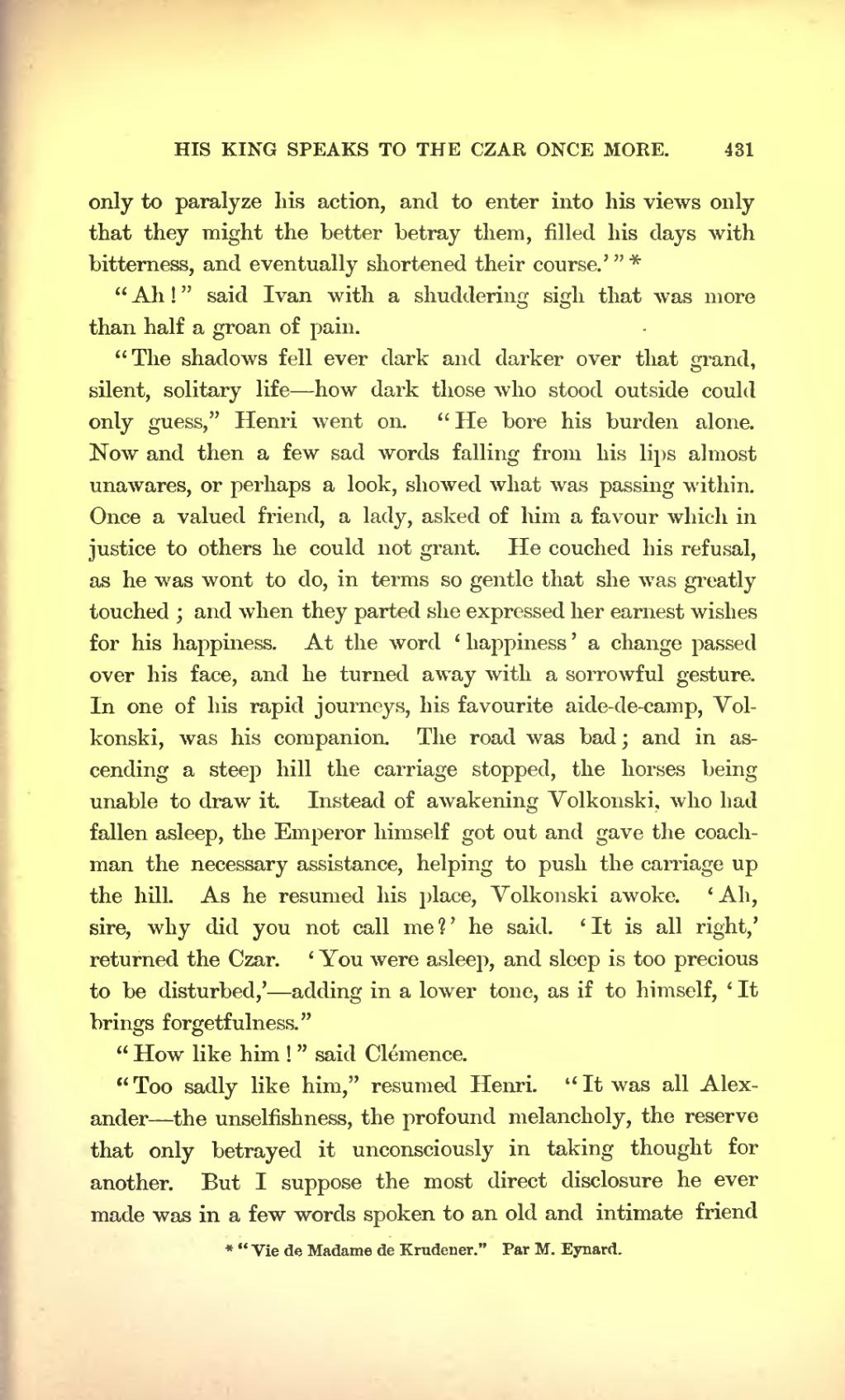only to paralyze his action, and to enter into his views only that they might the better betray them, filled his days with bitterness, and eventually shortened their course.'"[1]
"Ah!" said Ivan with a shuddering sigh that was more than half a groan of pain.
"The shadows fell ever dark and darker over that grand, silent, solitary life—how dark those who stood outside could only guess," Henri went on. "He bore his burden alone. Now and then a few sad words falling from his lips almost unawares, or perhaps a look, showed what was passing within. Once a valued friend, a lady, asked of him a favour which in justice to others he could not grant. He couched his refusal, as he was wont to do, in terms so gentle that she was greatly touched; and when they parted she expressed her earnest wishes for his happiness. At the word 'happiness' a change passed over his face, and he turned away with a sorrowful gesture. In one of his rapid journeys, his favourite aide-de-camp, Volkonski, was his companion. The road was bad; and in ascending a steep hill the carriage stopped, the horses being unable to draw it. Instead of awakening Volkonski, who had fallen asleep, the Emperor himself got out and gave the coachman the necessary assistance, helping to push the carriage up the hill. As he resumed his place, Volkonski awoke. 'Ah, sire, why did you not call me?' he said. 'It is all right,' returned the Czar. 'You were asleep, and sleep is too precious to be disturbed,'—adding in a lower tone, as if to himself, 'It brings forgetfulness.'"
"How like him!" said Clémence.
"Too sadly like him," resumed Henri. "It was all Alexander—the unselfishness, the profound melancholy, the reserve that only betrayed it unconsciously in taking thought for another. But I suppose the most direct disclosure he ever made was in a few words spoken to an old and intimate friend
- ↑ "Vie de Madame de Krudener." Par M. Eynard.
